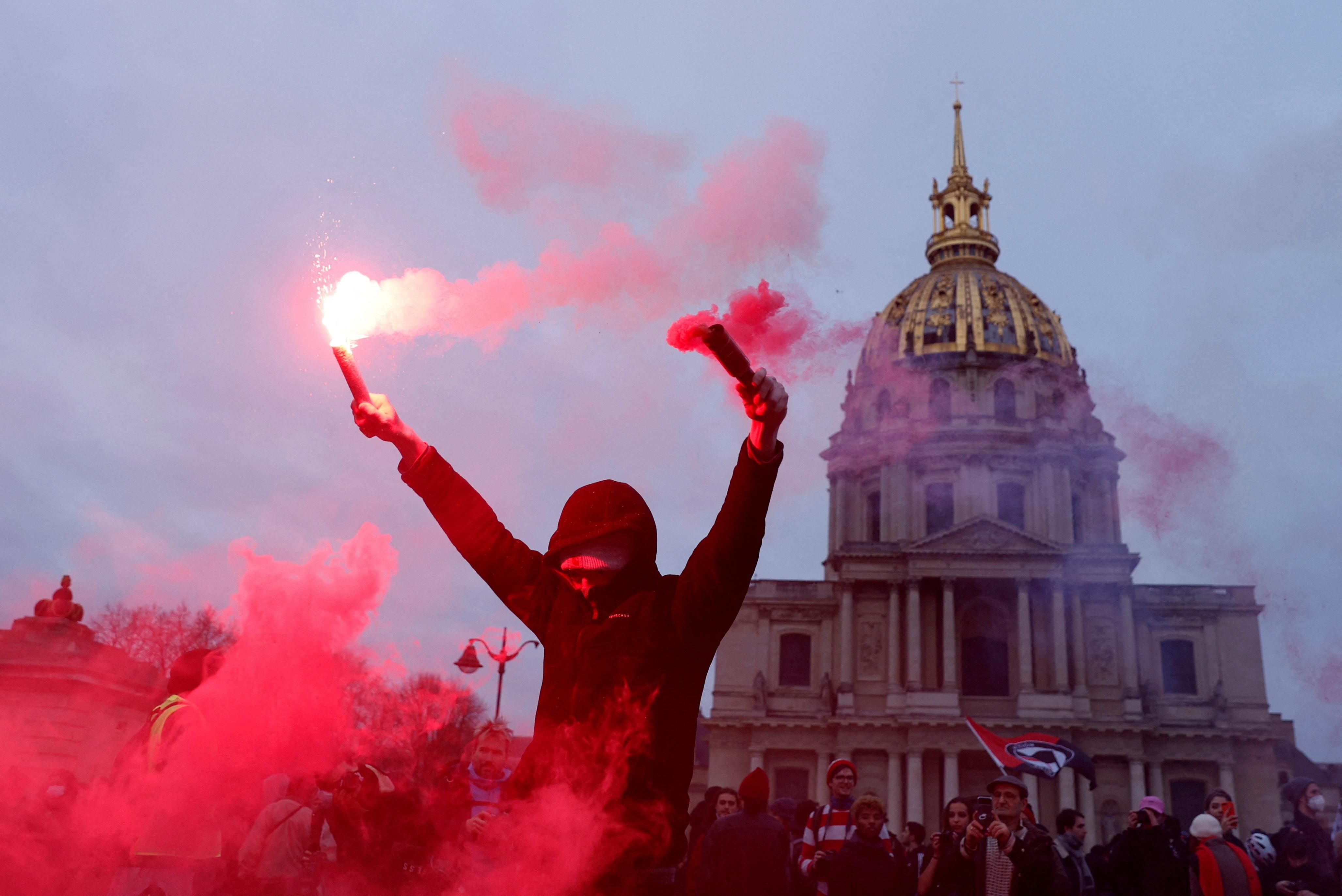What We’re Watching: An encore for French protesters, Zelensky’s growing wish list, Weah’s reelection bid
Round Two: French pension reform strikes
For the second time in a month, French workers held mass protests on Tuesday against the government’s proposed pension reform, which would raise the minimum retirement age from 62 to 64. Organized by the country’s eight big trade unions, authorities say as many as 1.27 million protesters hit the streets nationwide, bringing Paris to a standstill and closing schools throughout France. (Unions say the number was higher.) Meanwhile, President Emmanuel Macron is sticking to his guns, saying that incrementally raising the national retirement age by 2030 is crucial to reducing France’s ballooning deficit. (Currently, 14% of France’s public spending goes toward its pension program – the third-highest of any OECD country.) But for Macron, this is about more than just economics; his political legacy is on the line. Indeed, the ideological chameleon came to power in 2017 as a transformer and tried to get these pension reforms done in 2019, though he was ultimately forced to backtrack. But as Eurasia Group Europe expert Mujtaba Rahman points out, protesters’ “momentum is the key” and could determine whether legislators from the center-right back Macron or get swayed by the vibe on the street. This would force him to go at it alone using a constitutional loophole, which never makes for good politics. More demonstrations are planned for Feb.7 and Feb. 11.“To give me liberty, give me jets”
“Thanks for the tanks. Now we need jets.” That’s the message Ukraine’s President Volodymyr Zelensky has for his country’s Western allies. Poland and the Baltics have been predictably supportive. The French, British, and Dutch have said “let’s discuss it.” Early indications from Washington and Berlin are less positive. Zelensky’s latest set of maximalist requests set off a lively debate within your GZERO team meeting, with compelling arguments on both sides. Argument 1: The guy is president of a country fighting a war for survival. It’s not his job to make life easy for American and European decision-makers; it’s to eject Russia from Ukraine, and he needs the best Western weapons to do that. Every day, innocent people in his country die. He should ask for more than everything he needs to make it stop. Argument 2: That’s all true, but there are already voters in the US and Europe who wonder how expensive (and dangerous) escalating support for Ukraine might become with a nuclear-armed power on the other side. Zelensky must understand that the elected leaders in these countries have to listen to these voters. If his demands seem exorbitant and unending, Zelensky might be doing more harm than good. We’ll be watching to see how the West responds to his latest ask.
Weah running for Liberian re-election
Former soccer star George Weah confirmed this week that he'll seek a second — and final — term as Liberia's president in the October election. Weah swept to power in 2018 after beating VP Joseph Boakai in a landslide, promising to rid the country of corruption. Almost five years later, though, graft remains widespread, with Liberia ranking 142nd out of 180 countries in Transparency International's 2022 corruption perceptions index, and last year the US slapped sanctions on Weah's own chief of staff over multiple graft scandals. The president has also come under fire for doing little to address high inflation and food shortages related to Russia's war in Ukraine. More recently, Weah got flak for going on a two-month foreign trip — including a stop in Qatar to watch his son, Timothy, play for the US at the soccer World Cup — while most Liberians live in poverty. Still, Weah, the only African to win the coveted Ballon d'Or award for world's best player, has the one thing that all the opposition candidates lack: name recognition.
If you're a soccer fan and his name doesn't ring a bell, check out this FIFA video to discover how damn good Weah was in his prime.
